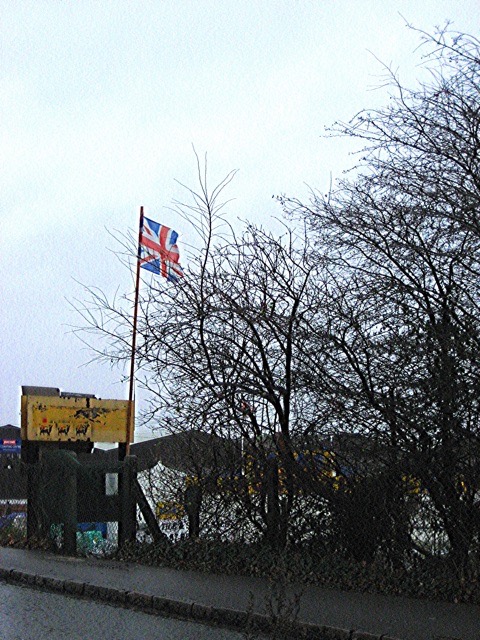Walking Backwards and Spitting in the Face of Death
by John Levett
8 February 2014
Originally published in our Old Blog.

Friday November 22nd last I took a walk.
Here’s the route: start outside Goldsmiths College a few minutes before 2pm, up then down the hill to Lewisham, through Ladywell and on to Catford; pass Bellingham and Southend Ponds; touch Downham and up Bromley Hill; along Bromley Common to the college and then retrace; where the Gaumont used to be take a short cut to Shortlands; up Martin’s Hill and past the parish church; down the high street to Bromley South; train home. Five hours tops.
It’s a walk that I could have taken on four occasions before but the fiftieth anniversary felt neater.
Later that same week : Sunday morning.
Here’s the itinerary: bike to Cambridge Station and train to Kings Cross; walk to Euston; train to Birmingham New Street; 74 bus from Snow Hill via Handsworth and West Bromwich to Dudley; walk around until dark; bus back and find hotel.
The two trips were a re-creation of the weekend of the killings of JF Kennedy & LH Oswald.
Why?
Because it’s time that I stopped doing this sort of thing.
How perverse. Again why?
Some time ago I decided to live until 2025. That would take me to eighty-one which seemed like a cute number and showed ambition. But …

During the last few years I have begun to question my photographic practice. The basis of my practice is that of walking in urban spaces; the space of my walking is largely that of the historical industrial city; the mode of walking is instinctual, mapless and void of intent. Or …
That’s what I’d like to think. A short while ago I began using the term Refractory Memory to describe my walking and, importantly, how I recorded the detour. Refractory Memory: stubborn, self-willed; obdurate and obstinate; behaviour that persists. I began to acknowledge the themes and tropes; the motifs and configurations that held fast in that which I recorded. Importantly, I questioned whether or not it was the walking that was the prime reason for being in a space rather than the recording of its constituent elements and consequences of its dynamics.
I noticed preferences for which side of a street I walked down; which way I turned out of a building; which age of architecture turned me around; which landscape features led me. I asked of myself what I avoided.
What I avoided was walking away from a personal biography as reflected-refracted through a built and remembered urban repository of fragments and fractures of a once-lived, frequently re-imagined, series of personalised anniversaries and faux formative memorial moments.
There’s a saying: “If you keep on doing what you’ve always done, you’ll keep on getting what you’ve always got.” To get through, and flourish within, the next decade and beyond I need a metamorphosis or, at least, sundry modifications to how I perform my investigative duties within the urban sphere.
Where to start? How to leave behind a mode of seeing of some decades’ duration and of Larkinesque trajectory?
At the January meeting of Crossing Lines I presented a segment on photography as a political practice. I recall a meeting at PhotoFusion a couple of years ago when the matter of ‘the street as political space’ was in discussion and remarking at the time that if we were debating this in Ramallah or São Paulo there would be no discussion. Where to start? Where’s the ‘political in the street’ that’s been missed? How long to wait for the eye to refocus? How to ‘fix the flux’?
The nub of changing practice is desire; an imperative to ‘look differently’, ‘see the previously wilfully hidden’ to ‘walk elsewhere’, to ‘stand still’, to ‘await a conjunction’, to ‘be present’.
Be patient? Waiting fifty years for a walk to Bromley South station & a bus ride to Dudley is decent training.
John Levett was a Visiting Research Fellow at CUCR and convenor of The Crossing Lines Group. He passed away in April 2022.
His areas of interest were in collective and collaborative curation; The spirit of his work is being continued by the group. For more details contact Peter Luck.
︎ Images by John Levett.

